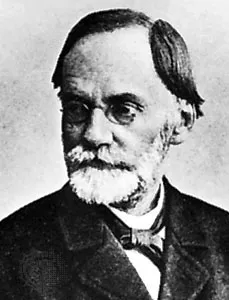More languages
More actions
Eugen Dühring | |
|---|---|
 | |
| Born | 12 January 1833 Berlin, Prussia |
| Died | 21 September 1921 Nowawes, Weimar Germany |
Eugen Karl Dühring was a German idealist philosopher and economist, for a while assistant lecturer of philosophy and political economy at the University of Berlin. Shortly afterwards becoming completely blind, Dühring, until his death, lived as a writer first in Berlin and later in Nowawes. The most notable representative of bourgeois socialism, he saw the “natural efforts of the individual mind” as the basis for the social order, preached the theory of the increasing participation of the workers in the social product and expected the salvation of the future to come from the reconciliation of class antagonisms.
He considered himself to be a reformer of humanity. Dühring gave many lectures before large crowds on a variety of topics, but was soon deprived of his lectureship following his vehement public attacks on the professors of Berlin. Between 1870 and 1880, he had a great deal of followers in the social democracy. In many works, Dühring developed a special socio-political system, which he had constructed with the help of a number of “final and absolute truths” which he thought he had discovered. He was an enemy of Christianity and an ardent anti-semite.
Despite himself, he indirectly served scientific communism; indeed, his fiery attacks on Marx and Lassalle and his “philosophy of reality,” stamped with megalo-mania, were to provoke the rejoinder of Engels’ famous classical work, Herr Eugen Dühring’s Revolution in Science (Anti-Dühring), a work which soon became the philosophical guide for the new revolutionary generation of workers. In this work, Engels tore into shreds Dühring’s entire system of platitudes and, with a master’s hand, gave a complete and clear account of dialectical materialism for the first time.
